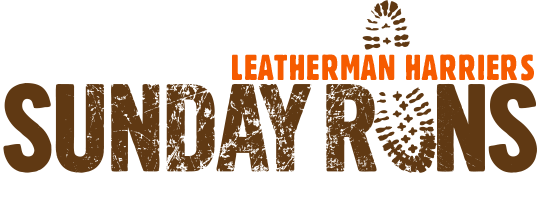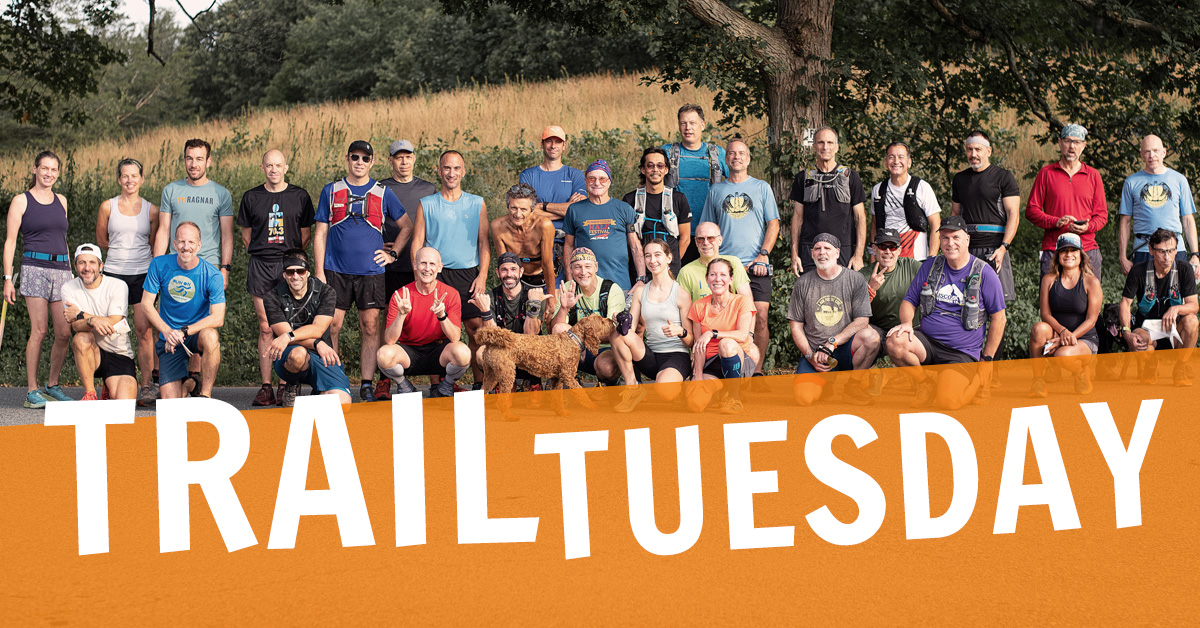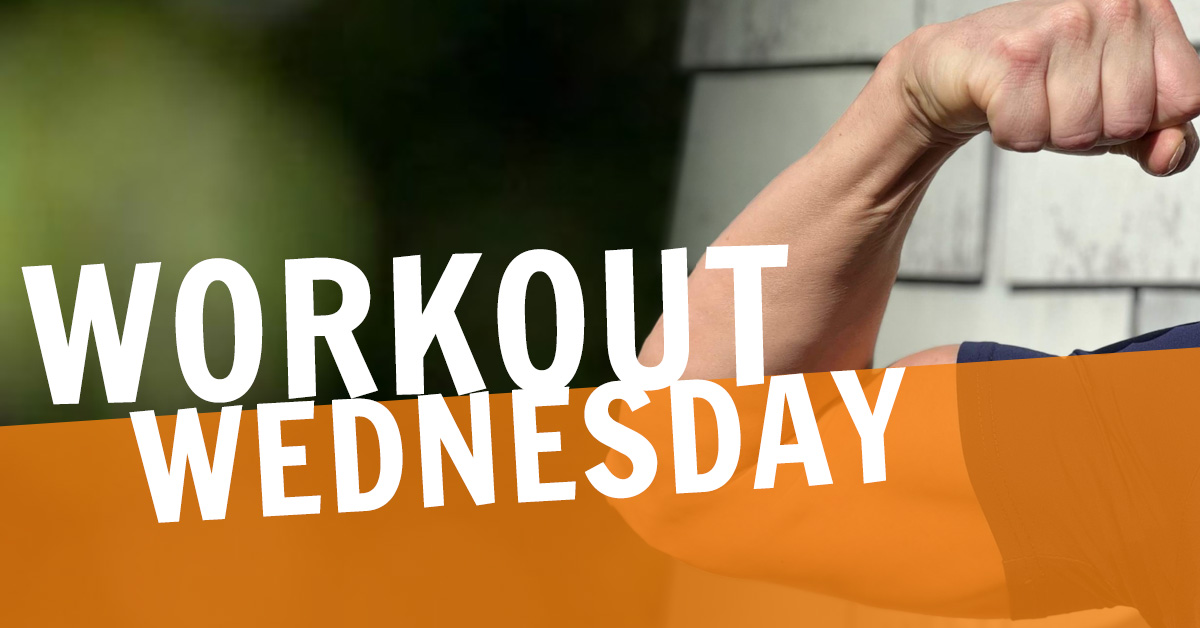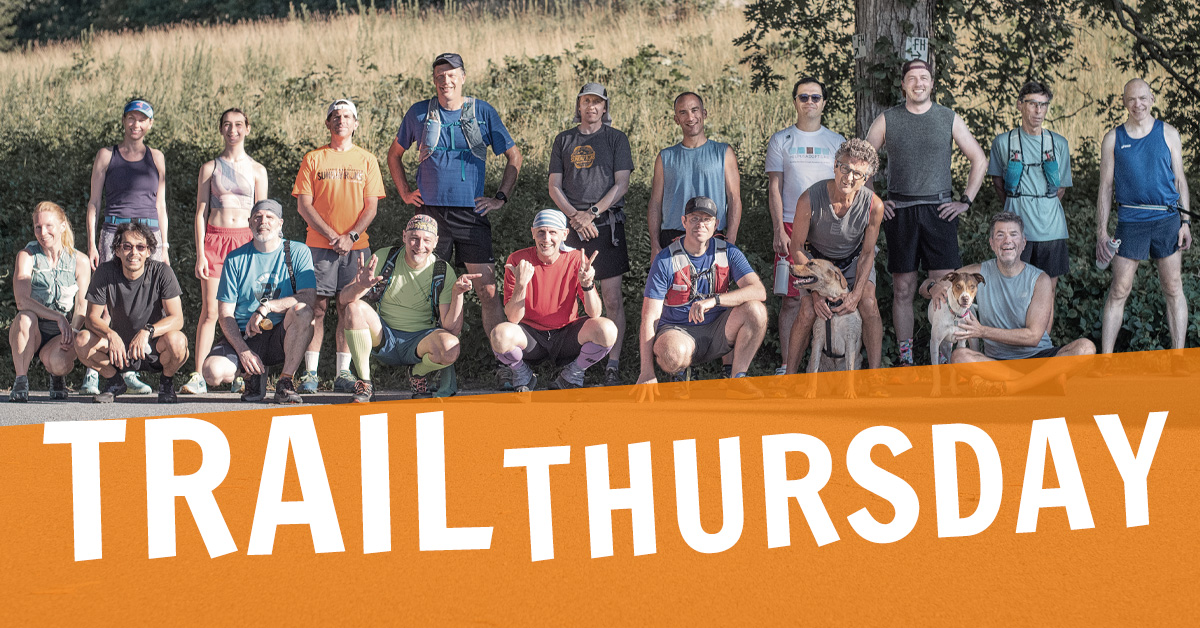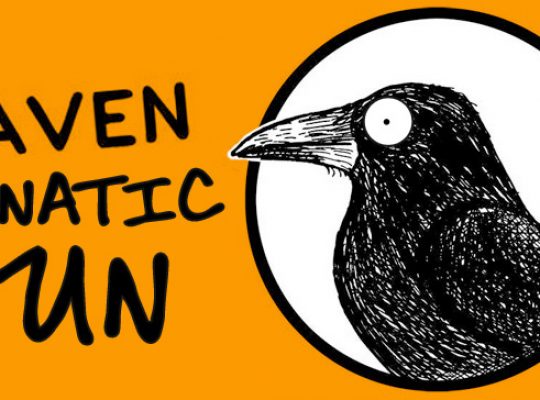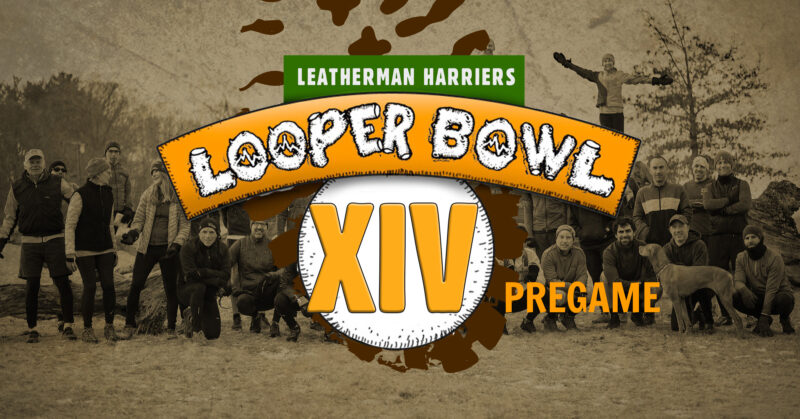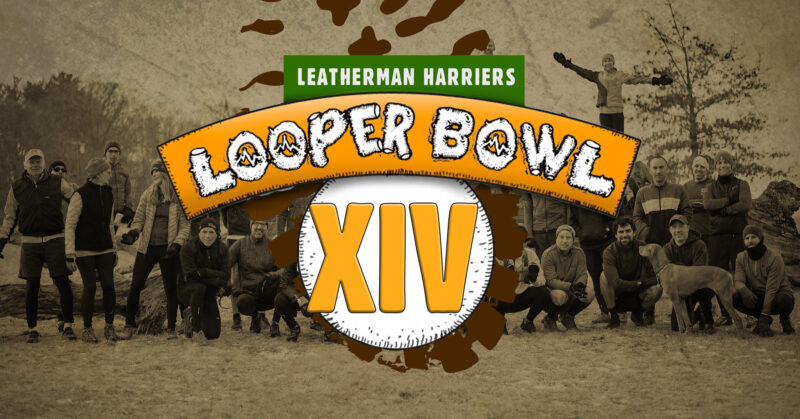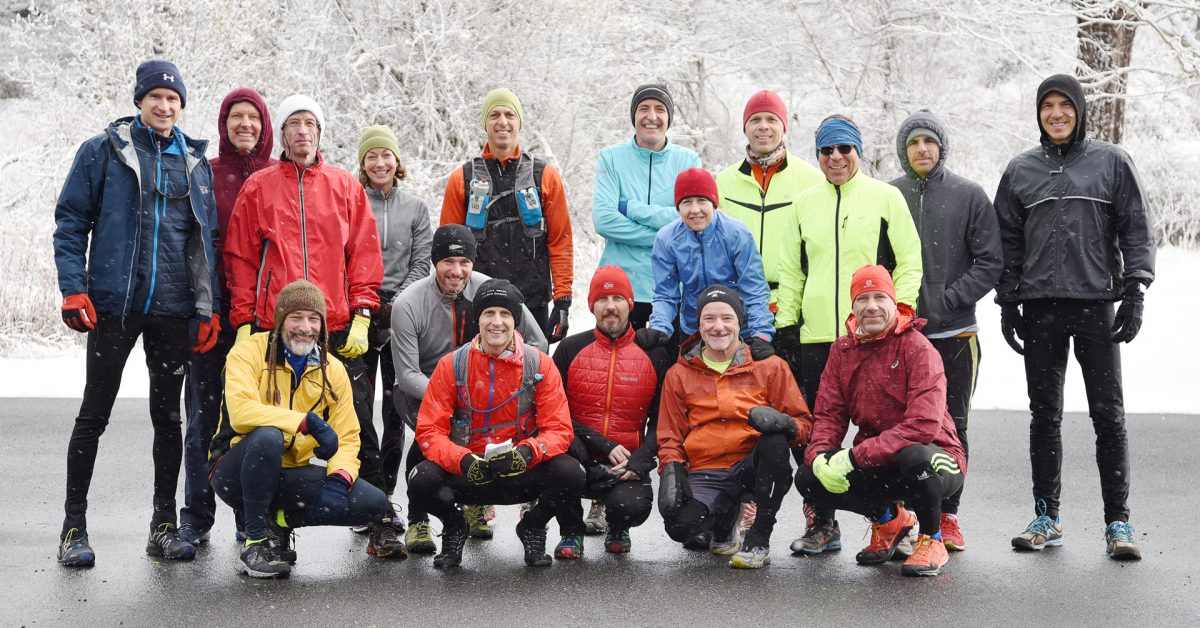
Winter Running Tips
Occasionally I get asked if we run in the winter. The answer is, “Absolutely.” And we have some pretty interesting stories to tell on the subject. But aside from those stories, there are some useful tips gleaned from various sources that will make your winter running more enjoyable.
Think About Your Feet
To keep warmth in and slush out, run in shoes that have the least amount of mesh. Mesh allows snow to melt and seep through, refreezing on the inside of your shoe, turning your toebox into an icebox. If you have shoes with Gore-Tex uppers, all the better. Wear socks that wick away wetness but keep your feet warm like SmartWool socks. Toe warmers can be great but keep in mind that their chemical reaction requires oxygen to generate warmth. If they get wet, you’ve just put a cold wet sponge in your shoe. Good luck with that.
Traction on Snow and Ice
You have three options for getting traction on snow and ice.
- The first option is a specialized winter running shoe. Many different manufacturers offer winter shoes with superior warmth, dryness, and grip. Solomon Snowcross, Inov-8 ArticClaw, and Saucony Razor, are some heavy-duty options, and there are others. Some of these shoes include spikes built into the sole which offer great traction on snow and ice but since they’re built in, can’t be removed if you find conditions aren’t what you expected at the start. All of these shoes offer good protection for water and cold but are relatively expensive. Still, if you’re going to be running through the winter, a dedicated pair of shoes is a comfortable way to do it.
- Another option is to buy removable spikes that give you added grip in the snow. Kahtoola Microspikes are a good option here though some have had good luck with YakTrax. The upside of these is that if you have winter running shoes that you use on the road, or if you decide mid-run that the conditions don’t warrant them, you can always take the spikes off. The downside is that if you’re adding these to your summer, mesh, and ventilated running shoes, you’re going to find that unless the snow is well packed, it will accumulate on top of your shoe, melt, and refreeze inside (see the toebox = icebox comment above). Ideally, you’d want to put these on a winter shoe that offers more protection.
- Screw shoes. For those who don’t want to make a commitment to winter running can add traction to an old pair of shoes by adding some sheet metal screws. The definitive guide is this page. This is a low-cost option that will add traction. Yes, you will lose screws along the way and, most likely, you’ll be using an old pair of ventilated summer shoes so there’s that issue, but this is a good place to start.
- Do nothing special. That’s right. You don’t absolutely NEED anything special to run in the snow and if you don’t have traction, that just means you’ll get a better workout. But seriously. If you’ve never tried running in snow, you can give it a try, see how it goes, and adjust your gear for next week.
Why I Learned to Love Gaiters
So, one thing you’ll find in heavy snow is that ice will develop around your foot at the top of the shoe. With high-top shoes, this is less of a problem, but with standard-cut shoes, it can be uncomfortable. The solution is a pair of Gaiters. Runner Joseph Cloidt prefers DirtyGirl Gaiters which come in a variety of colors and patterns including “Shiny Sparkly Glittery Holographic Prints” if that’s your thing. Most shoe manufacturers offer their own brand a gaiters and, as far as I know, they’re all interchangeable. These add a layer of warmth around your ankle and, more importantly, keep snow and ice from building up around your shoeline.
Breaking the Ice
On occasion, when rain falls and then freezes on top of new-fallen snow, a crust of ice forms. Sometimes this is just an eggshell-thin surface that can easily be run through but sometimes it’s a bit more substantial. On those more substantial days, you may find your shins absorbing a punishment with every step as your foot breaks the surface and you lean forward into your next step. On those days, I’ve found an old pair of soccer shin guards handy. It’s not often that these conditions occur but when they do, it’s nice to have a little extra protection.
Gloves vs. Mittens
This is a matter of personal opinion and varies greatly. I prefer a lighter weight glove similar to some offered by SmartWool. I’ll pull my fleece sleeves down over my hands to keep them warm at the start of the run and, as I warm up, will expose my hands more. On days when the temps hit single digits, I’ll use these gloves as liners to a pair of windproof gloves or, when it’s very cold, heavyweight mittens. But wear what’s comfortable for you. Just keep in mind that as with the rest of your body, your hands will warm up as you run.
Base Layer
What you put next to your skin can make a huge difference between a great day and a terrible day. A few years ago I got a good deal on a Craft Active Extreme base layer from RunningWarehouse.com. It’s been my go-to base layer when the temps drop and I’ve seen a lot of runners showing up in various Craft pieces since. It’s well-made, warm, lightweight, but breathes. There are other products on the market for sure and stick with what works for you. I’m going to stick with this.
You want to be warm without sweating so much you get a chill. The rule of thumb is to dress as if it is 20 degrees warmer. You should be slightly cool when you start. Think layers of technical fabrics, to wick sweat, with zippers at the neck and underarm area to vent air as you heat up.
- 30 degrees: 2 tops, 1 bottom. Long-sleeve base layer and a vest keep your core warm. Tights (or shorts, for polar bears).
- 10 to 20 degrees: 2 tops, 2 bottoms. A jacket over your base layer, and wind pants over the tights.
- 0 to 10 degrees: 3 tops, 2 bottoms. Two tops (fleece for the cold-prone) and a jacket. Windbrief for the fellas.
- Minus 10 to 0 degrees: 3 tops, 2 bottoms, extra pair of mittens, 1 scarf wrapped around mouth or a balaclava, sunglasses or ski goggles optional
- Minus 20 degrees: 3 tops, 3 bottoms, 2 extra pairs of mittens, 1 balaclava, sunglasses or ski goggles
Upcoming
Trail Tuesday
January 28 @ 5:30 am - 7:00 amPound Ridge, NY 10576 United States + Google Map
Workout Wednesday—Trailside Museum
January 29 @ 5:30 am - 7:00 amPound Ridge, NY 10576 United States + Google Map
Trail Thursday
January 30 @ 5:30 am - 7:00 amPound Ridge, NY 10576 United States + Google Map
Raven Lunatic
February 2 @ 8:00 am - 10:00 amPound Ridge, NY 10576 United States + Google Map
Trail Tuesday
February 4 @ 5:30 am - 7:00 amPound Ridge, NY 10576 United States + Google Map
Trail Thursday
February 6 @ 5:30 am - 7:00 amPound Ridge, NY 10576 United States + Google Map
Looper Bowl Pregame
February 8 @ 7:00 am - 9:00 amPound Ridge, NY 10576 United States + Google Map
Looper Bowl
February 9 @ 8:00 am - 10:00 amPound Ridge, NY 10576 United States + Google Map
Trail Tuesday
February 11 @ 5:30 am - 7:00 amPound Ridge, NY 10576 United States + Google Map
Trail Thursday
February 13 @ 5:30 am - 7:00 amPound Ridge, NY 10576 United States + Google Map
Stay On Course
The Free Avenza Maps software now has a free trail map of the Reservation available here. I’ll make .kml files available as I can so you can load them as layer overlays. Now there’s no excuse to get lost.
Donate
Help keep the site running, kick in something for a night run, or help share the cost of special events by donating. Any amount accepted. Thanks.
Donate with Venmo ››
